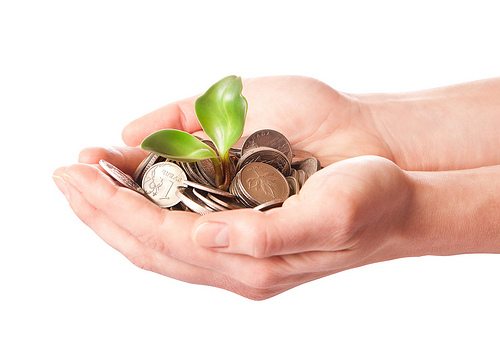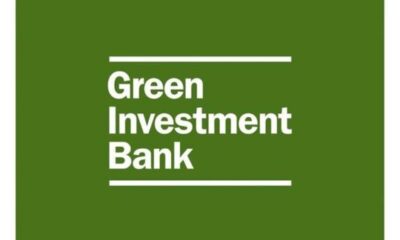

Features
My journey from the dark side
Rodney Schwartz, formally the Head of Equities for Lehman Brothers and now CEO of ClearlySo, discusses his transition from the ‘dark side’.
This article was originally published on LinkedIn.
I guess my own journey from the dark side began when I left the City. I loved being a research analyst but once I drifted up into senior management (eventually as Head of Equities in Europe for Lehman Brothers), I became part of the world that I didn’t find especially comfortable. Research analysis was meritocratic — being a manager at an aggressive investment bank was anything but.
At the same time, I was getting to an age where existential questions began to feature and my four children were getting to an age where their questions about “the meaning of life?” became increasingly challenging. When you are dispensing moral messages aplenty, but work in an environment that is morally uncomfortable, your kids notice this disconnect; I was unwilling or unable to live such a bifurcated life. I felt the work I did needed to be something that was consistent with my values and would make my kids proud. It took me a while to figure out what to do.
Fortunately three simultaneous roles helped clarify things. I consulted at a world-leading investment bank, and I was Chair of one of the country’s largest charities and also Chair of Justgiving. Let’s just say that I found the first two dispiriting.
I realized the City and I were finished with each other, and that the governance issues at the charity raised questions. On the other hand, Justgiving was inspiring as a well-run business that was creating value for shareholders and customers. At the same time, it was generating enormous social impact (well over $3 billion in charitable donations has been facilitated through the website, making it the world’s largest player). It became obvious to me that doing well and doing good were not mutually exclusive – and my life’s mission became how to use my skills to “create 100 JustGivings”. This was the genesis of ClearlySo.
ClearlySo is an unusual investment bank, which only raises capital for businesses with a high social or environmental impact. It does so from 700+ European institutional investors and the U.K.’s largest network of HNWIs. The businesses we assist range from early stage growth ventures looking for as little as £100,000 up to mature businesses and charities seeking £20 million or more. In addition, we are a placement agent raising tens of millions for impact investment funds. We have helped 50+ organizations; they have raised about £70 million in transactions in which we have assisted.
Putting the money to the side, what really gets me out of bed is the amazing work that is enabled by the capital we help to find. I am often moved to tears when hearing of the beneficiaries of the work our clients do – they all change lives for the better. Aduna’s superfood products, for example, create sustainable livelihoods for farmers in sub-Saharan Africa, while Framework’s innovative homelessness intervention models help some of the most vulnerable in society. What could possibly be more inspiring work?
What’s unique about us is that we seek to bring impact into all investing. I don’t see impact investment as a niche, but rather a way for all investment to be a force for good. Whereas others talk about an “asset class”, I see social (and environmental) impact as the third dimension to all investing, alongside financial return and risk.
Our industry is booming as financial institutions and their clients begin to analyze and assess the impact of all their investments and seek financial instruments which explicitly take that into account. We are at the forefront of this movement and see ourselves operating at the edge between impact investing and mainstream pools of capital.
Looking back 10 or 20 years from now, ClearlySo will be successful if we do not need to exist. In such a world, it would be perverse not to consider the social, ethical and environmental impacts of all investments, and investors will be making conscious allocations on these three dimensions.
I also believe that in the years ahead the negative and positive impacts (“externalities”) of organizations will be “internalized”; if you cause society pain, you pay the full price of that pain, and if what you do benefits society, you secure a large portion of that benefit. Under such a system we would all be better off; if I were Prime Minister I would implement this tomorrow.
Photo: 401(K) 2012 via Flickr
Further reading:
Over £800,000 equity investment raised for social and impact investing
Impact investment ‘developing rapidly’, says UKSIF report


 Environment12 months ago
Environment12 months agoAre Polymer Banknotes: an Eco-Friendly Trend or a Groundswell?

 Features11 months ago
Features11 months agoEco-Friendly Cryptocurrencies: Sustainable Investment Choices

 Features12 months ago
Features12 months agoEco-Friendly Crypto Traders Must Find the Right Exchange

 Energy11 months ago
Energy11 months agoThe Growing Role of Solar Panels in Ireland’s Energy Future






























